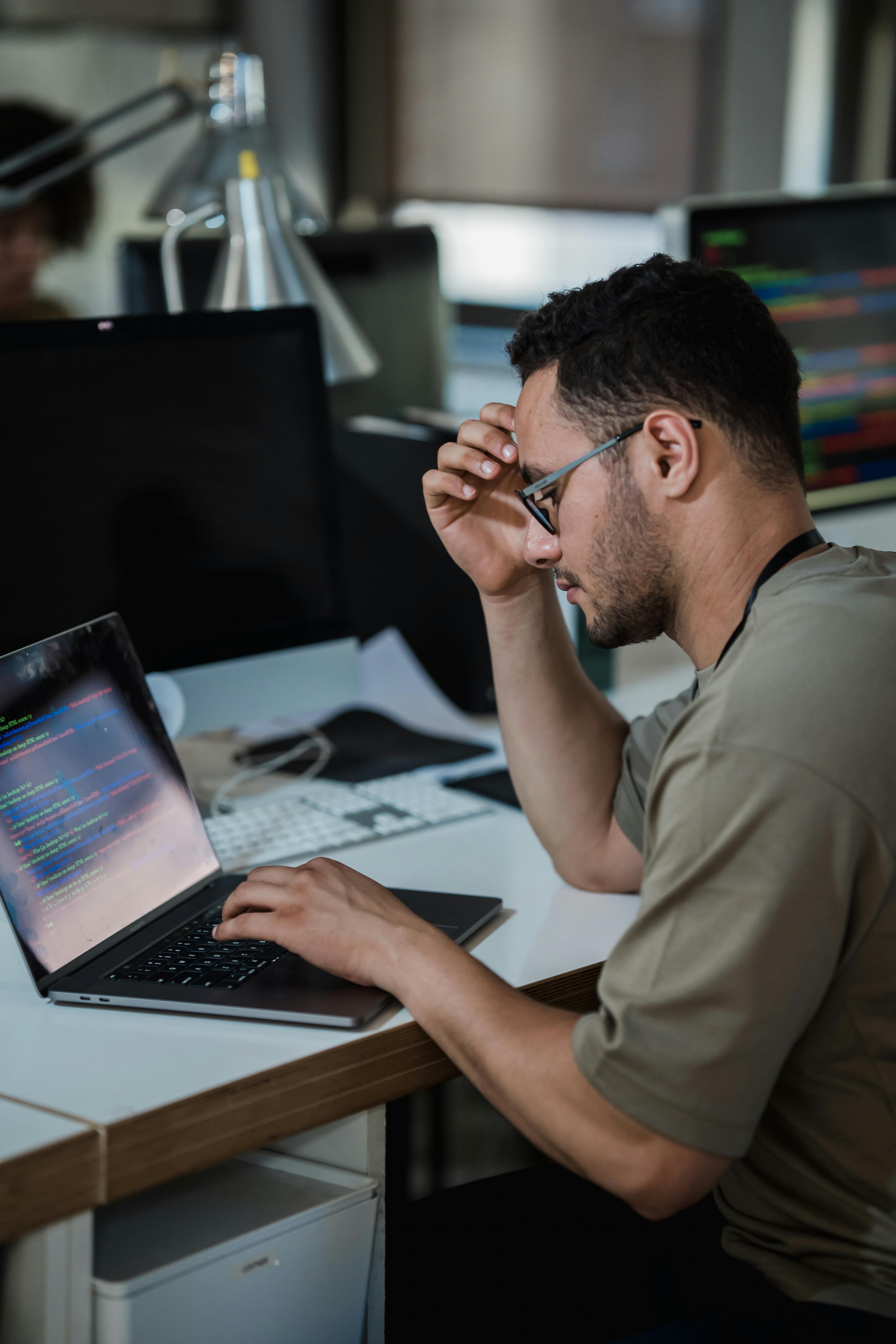Specialized Therapy for Anxiety

What is anxiety?
We all know how anxiety feels. That sense of dread, tension,
fear, and even irritability. Anxiety can look like obsessive
thinking, replaying events over and over, or expecting the
worst. It can make us feel physically tense, fatigued, or
overwhelmed. Sometimes anxiety comes on so suddenly and
intensely, that we worry about our physical health and
well-being. This can look like a racing heart, nausea,
difficulty breathing, or feeling flooded with fear and panic. We
may even start to avoid things that make us feel anxious, which
can impact our work, relationships, and ability to enjoy our
life.
Anxiety can be a daily experience for many people,
which can make it hard to recognize. If we generally feel on
edge, restless, and worried, how can we tell if this is
unusual?
Anxiety is a necessary emotion that motivates us to take action
when we encounter a threat. This was especially helpful when we
had to run or hide from a lion or bear in order to ensure our
survival. In today's world, we aren't encountering apex
predators, but our anxiety reactions are still there. Sometimes,
anxiety can feel like a faulty car alarm. It's overactive and
happens out of the blue. We don't know what's going to set it
off and can become focused on preventing symptoms from taking
over.
Even if our anxiety makes sense given the circumstances, like
preparing for a stressful work meeting or dealing with rush hour
traffic, sometimes the intensity of our feelings can be
overwhelming. We may lash out in the moment, and regret how we
handled anxiety after the fact.
Anxiety itself is not
bad or wrong, but it can become a problem when it limits our
day-to-day activities or feels like it is taking over our life
and mental health. When anxiety reaches this level, it is
possible that you may have an anxiety disorder.

What causes an anxiety disorder?
Anxiety can be complicated, and often multiple factors can
impact developing an anxiety disorder. Anxiety disorders and
other mental health conditions can run in families, meaning that
if a parent or close relative has anxiety, we may be more likely
to develop anxiety also.
Anxiety is also impacted by our life history and events that
have happened to us. Let's take the example of a phobia. If you
are bitten by a dog, you may learn that dogs are unsafe and may
start avoiding dogs. While this reduces anxiety in the short
term, over time, this may result in increased feelings of
anxiety around dogs.
Anxiety can also occur during times of change. Graduating high
school, starting college, transitioning to graduate school, or
starting a new job are all times of tremendous stress. Other
life changes like getting married, becoming a parent, or getting
divorced can all result in increased feelings of anxiety.
How do I know I have anxiety?
If you're experiencing these, this would be a good thing to talk about with your therapist:
- Worry - Feeling like any new uncertainty or stress becomes your focus. Feeling like you'll be able to relax once you solve the problem, only for a new problem to take its place. Feeling sick and tired of worry but being unable to stop it. Worrying about worry and anxiety.
- Difficulty shifting gears - Difficulty changing focus, feeling stuck in patterns of thinking, even though you have tried over and over to "move on."
- Overpreparation - Planning above and beyond what's needed, for example, planning topics of conversation for a party, or needing to know all details of a plan before committing to it.
- Researching - Looking things up as a way to feel better about worry or anxiety, for example, repeatedly googling ways to manage anxiety or using Google as a way to reassure yourself about physical symptoms of anxiety.
- Need for Control - You feel most comfortable when you are the one taking the lead. You struggle to hand things off or trust that other people will get things done to your specifications. It is hard to be spontaneous or go "off the cuff."
- Trouble Relaxing - Feeling tense, on edge, and like you're unable to relax, even when you've done all the tasks for the day.
- Avoiding - Avoiding because of anxiety, whether that's declining lunch with a friend or speaking up during a work meeting. Feeling less confident as a result of putting things off.
- Reassurance - Asking family, friends, and colleagues for reassurance, that you did the thing right, that you're doing enough, or that you're doing okay.
- Concentration problems - Trouble focusing because there's so much going on inside your head. Feeling like you just want to focus on the thing in front of you but your mind feels scattered or inefficient.
- Physical symptoms - Increased heart rate, sweating, difficulty breathing, chest tension, nausea, feeling faint, increased headaches. Increased worry about your health or avoiding things because they may cause physical symptoms, for example, no longer going to the gym to avoid feeling an increased heart rate.
- Restlessness - Feeling fidgety, restless, or like you always need to be moving. You're most comfortable when you're in motion.
- Sleep issues - Feeling exhausted but then wide awake when you get to bed. Feeling like you're unable to shut your brain off when you're not distracted by the busyness of your day. Worrying when you want to be sleeping.
- Keeping busy - You're overscheduled and overcommitted. You're on the hamster wheel of keeping yourself busy because when things are slow, it feels more anxious and uncomfortable.
- Distraction/Self-medication - Using alcohol, marijuana, social media, or food to distract from anxiety symptoms. Feeling like you're overusing coping strategies that you used to use on occasion.

What can help to manage my anxiety?
Therapy, medication, or a combination of these two approaches
can often be helpful. Treatment decisions should be made
collaboratively with your physician and/or mental health
provider. Your doctor and mental health provider can work as a
team, with your permission. Evidence based therapies for anxiety
include ACT, DBT, and CBT.
Your therapist should individualize treatment for you and
incorporate therapy modalities that are most effective for your
symptoms and goals for therapy.
Therapy for anxiety involves learning skills like deep breathing
and relaxation to cope with anxiety and related physical
symptoms, like nausea, difficulty breathing, or increased heart
rate. Anxiety skills practice can improve physical tension and
trouble relaxing. Learning additional coping skills for when
you're feeling emotionally overwhelmed or panicked can also help
to build confidence. Incorporating mindfulness practice can also
help you to relate differently to any thoughts, feelings, and
physical sensations that are related to anxiety.
Therapy also involves exploring beliefs that you hold about your
anxiety and determining if these beliefs are contributing to
your anxiety level. For example, many people with anxiety
believe that uncertainty is dangerous. In therapy, exploring
this belief and finding ways to adapt it can help to reduce
anxiety. Building healthier ways of thinking can help to better
cope with anxiety overall. Therapy also involves building
confidence and increasing your contact with things you may avoid
because of anxiety.
Stop Worrying and Start Living
Evidence based Therapy for Anxiety and Worry
Are you ready to stop worrying, slow down, and find a new way to
respond to anxiety symptoms?
Evidence based cognitive
behavioral therapy can help to build alternative coping skills
for anxiety, including reframing and replacing anxiety provoking
thoughts with more helpful ways of thinking.
Contact Dr. Ruth Viehoff
today for a free consultation to learn more about
anxiety-focused therapy!